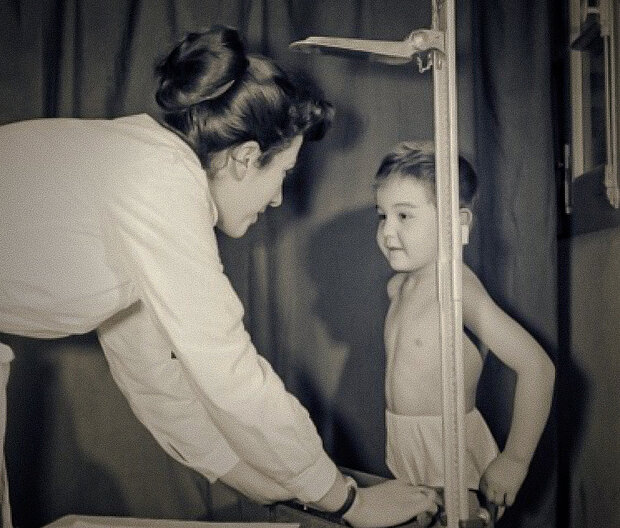
Voyage en Santé
a documentary by Pierre Arbus & Alain Miquel - 90 minutes
Lucette, a retired Public Health and School Hygiene worker who practiced in the 1960s, was a fervent advocate for the great project that was Public Health... until its disintegration at the end of the 20th century.
Her benevolence as a school doctor taking off her white coat as not to frighten the children during medical examinations; that of Paul, a general practitioner practicing haptonomy or trying to prevent the possible side effects of authorized vaccines; would all that be part of a disappearing world?
In 1970, Lucette was requisitioned for an urgent vaccination campaign against cholera from Spanish grape pickers in transit in Cerbère. Fifty years later, a pandemic whose scale is only matched by its controversial management, affects Lucette and Paul and leaves them baffled.
In the land of Molière’s and Jules Romains’ doctors exhibiting imaginary care, other professionals of this recent past as well as contemporary clinicians and scientists question the data of science and the role of each in everyone’s health.

Voyage en Santé
a documentary by Pierre Arbus & Alain Miquel - 90 minutes
Lucette, a retired Public Health and School Hygiene worker who practiced in the 1960s, was a fervent advocate for the great project that was Public Health... until its disintegration at the end of the 20th century.
Her benevolence as a school doctor taking off her white coat as not to frighten the children during medical examinations; that of Paul, a general practitioner practicing haptonomy or trying to prevent the possible side effects of authorized vaccines; would all that be part of a disappearing world?
In 1970, Lucette was requisitioned for an urgent vaccination campaign against cholera from Spanish grape pickers in transit in Cerbère. Fifty years later, a pandemic whose scale is only matched by its controversial management, affects Lucette and Paul and leaves them baffled.
In the land of Molière’s and Jules Romains’ doctors exhibiting imaginary care, other professionals of this recent past as well as contemporary clinicians and scientists question the data of science and the role of each in everyone’s health.
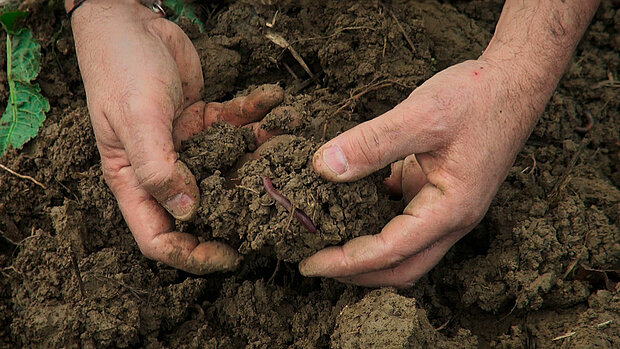
Prendre Soin de la Terre
a documentary by Guy Chapouillié - 125 minutes
In a world exhausted by industrial agriculture, Guy Chapouillié meets happy farmers, in the difference and diversity of their words, gestures and sites, yet very close in the commonality of their commitment: to do things differently to take care of the Earth, to take care of ourselves and others.
It is a break with devastating productivism, far from constraining nature, but rather living with it, without exhausting it. It is a new song of the earth, a symphony of the living.
watch clips: Jean-Luc : Pourquoi le Bio ? - Bernard : Le jaune d’œuf - Xavier : Préserver la nature
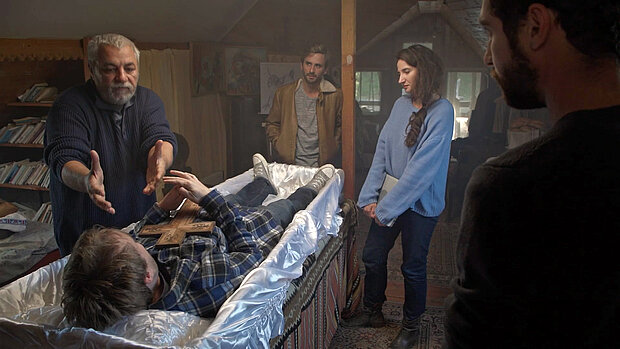
The Deadman's Bride (VOST)
a feature film by Cornel Gheorghita - 100 minutes
A French television crew sets up in the inn of a small village in Romania to film a documentary trilogy on the survival of traditions during baptisms, weddings and funerals.
If the filming of the first subjects is managed without too much difficulty, it is not so for the last one: no one is willing to die.
The crew chooses to stage a funeral, dragging the superstitious villagers into a macabre game.
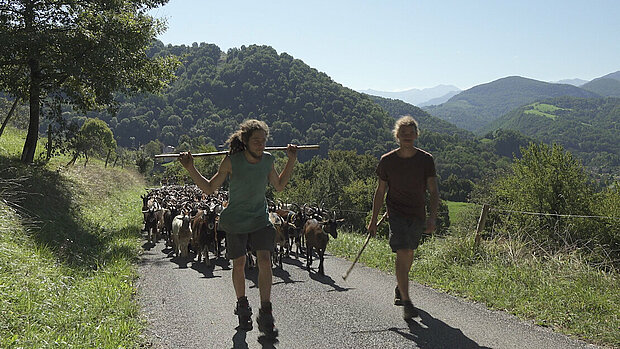
The Herder's Answer (VOST)
a documentary by Jean Samouillan - 90 minutes
In Ariège, in the French Pyrenees, the Garcias have been living off their goat farm since the 1970s. They passed on their rich experience to young people who are now becoming independent with cheese-making projects of their own.
They become confronted by an insensitive nit-picking bureaucracy, which is not adapted to non-industrial agro-industry. So they try to adapt, struggling to preserve not only a traditional dairy in the mountains used to make cheese, but also their life projects.
Fagot d'or (Best Documentary Film Award) - Festi'vache Film Festival
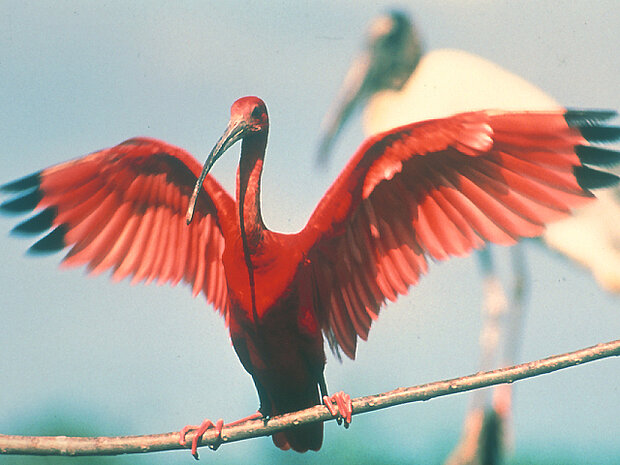
Santa-Maria des Oiseaux
a documentary by Roger Leguen & Sylvain Luini - 50 minutes
The rainy season is coming to an end. The Santa Maria fazenda welcomes thousands of birds, even more than in previous years.
Scarlet ibises—elsewhere hunted for their bright feathers—here rub shoulders with roseate spoonbills, cocoi herons, yellow-billed storks, large or blue snowy egrets, gray or purple night-herons…
Alongside the life of this sanctuary, that of the men of the fazenda flows peacefully, punctuated by work with buffaloes, tidal fishing, hunting, and the so "traditional" picking of acai berries.
watch the teaser
watch the film
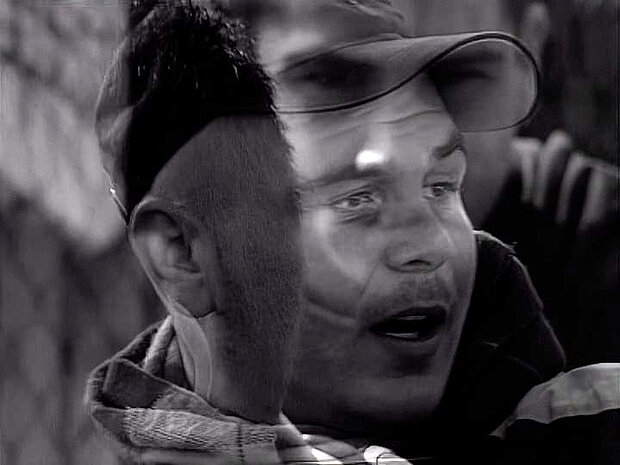
Partout !
a documentary by Alain Miquel & Françis Belot - 26 minutes
We must hear them, the words of these young people when they are spot-on, relevant, sometimes moving, and filled with fragility.
In the light of the 2005 events in the French suburbs, those words are stated, five years earlier, as the premises of an uproar to come.
This film invites us to share moments of life—on the occasion of drug addiction and delinquency prevention programs—then to listen, in the same setting and under the same light, to those involved in these organized courses… whose purpose is also questioned.
watch the teaser
watch the film
![[Translate to English version:] shepherd behind sheep and lamb](/fileadmin/_processed_/2/2/csm_etre_berger_02_7e7f215a3a.jpg)
J'ai eu la chance d'être berger
a documentary by Gilles Rivière - 26 minutes
While the mountain images pay homage to these majestic spaces, authenticity prevails, testifying to the wise humility that animates the host of the place. Our shepherd's relationship to the sublime but sometimes hostile environment, to solitude as to the sheep he watches over and cares for, is portrayed with an accuracy that has earned this film the recognition of its peers.
The questions addressed—simple and immediate—are those that come to mind when we think of the shepherd's daily life in the mountains, with his flock and his dog as companions. Our shepherd answers them with a luminous and moving simplicity.
GRAND PRIZE - Unanimously Awarded by the jury of the Pastoralisme et Grands Espaces Film Festival
watch the teaser
watch the film
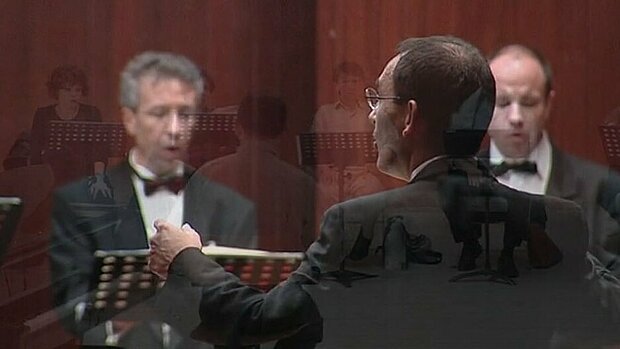
Haydn, Janacek, Ligeti par Musicatreize
a documentary by Michel Dieuzaide - 52 minutes
Roland Hayrabédian insists on the sound of each voice, explaining to each of the twelve singers of Musicatreize rehearsing with him that the clarity of the work is the most important thing.
Various musical works performed by this contemporary ensemble are filmed during a show, in Clermont-Ferrand and Marseille. They are punctuated by comments and piano work sequences from the conductor studying the scores they are about to work on.
Respecting a balanced mix between work sessions, concerts and interviews, the life of the ensemble is also evoked and the film lingers on the musical tracks that are available to listen.
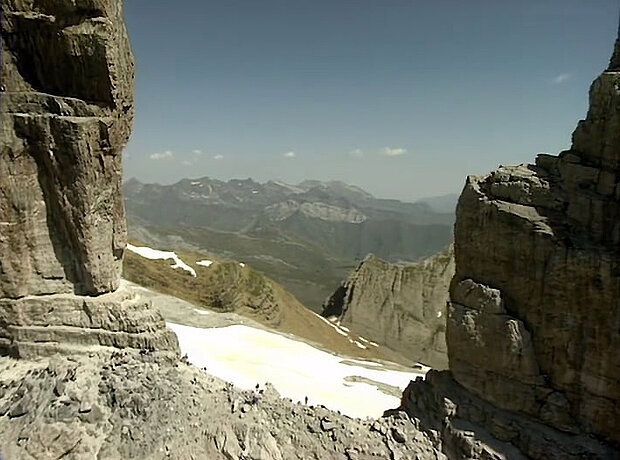
Gavarnie, Cirque de plaisirs
a documentary by François Mommeja - 26 minutes
A UNESCO-listed site in the Hautes-Pyrénées, the Cirque de Gavarnie attracts a large number of visitors, from the simply curious passing through to the experienced mountain enthusiast. The Gavarnie site exerts its fascination on this motley crowd.
But how many know that throughout its history, the Cirque has enchanted poets, painters, writers, geographers and adventurers with its magic?
watch the teaser
watch the film
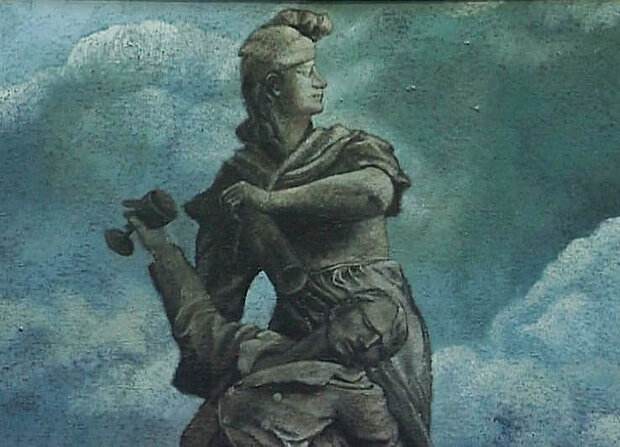
Merci, Monsieur Cordier !
a documentary by Michel Dieuzaide - 54 minutes
Viewers are led to a slow and gradual discovery of this exhibition-collection that recreates the Daniel Cordier donation. Exhibited at the Musée des Abattoirs, it expresses a true vision of creation, a real passion for painting.
The exhibition itinerary, curated by museum's director Alain Mousseigne, brings together works and artistic approaches that were at first unlikely to be mixed, as if to better reveal their capacity to live and question the world, even beyond the time when they were created.
watch the teaser
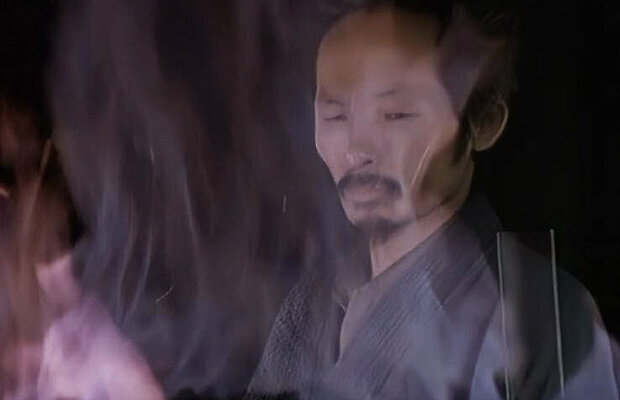
Nippon To
a documentary by François Mommeja & Alain Sorribes - 12 minutes
Filmed in France around a unique katanas (Japanese swords) manufacturing experience, using medieval techniques by Japanese master blacksmiths.
The event was hailed by the press as a world first: metallurgists, scientists and renowned cutlers followed the progress of operations with great interest.
Shot on film reel, this documentary warmly captures the atmosphere of spirituality that accompanies the age-old gestures of these master craftsmen, elevated in their country to the status of "living cultural treasures."
watch the teaser
watch the film
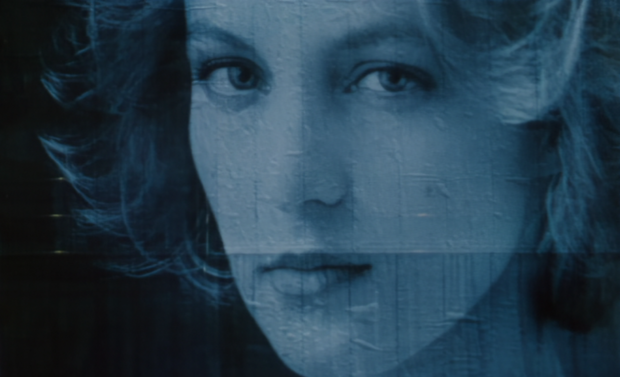
Caramel
a short film by Cathy Dambel - 15 minutes
CARAMEL, the poster promises; it's the title of the film. A young woman takes part in an advertising campaign.
She becomes the face that inhabits the walls: multiplied, magnified. This public image obsesses her partner and disturbs their relationship.
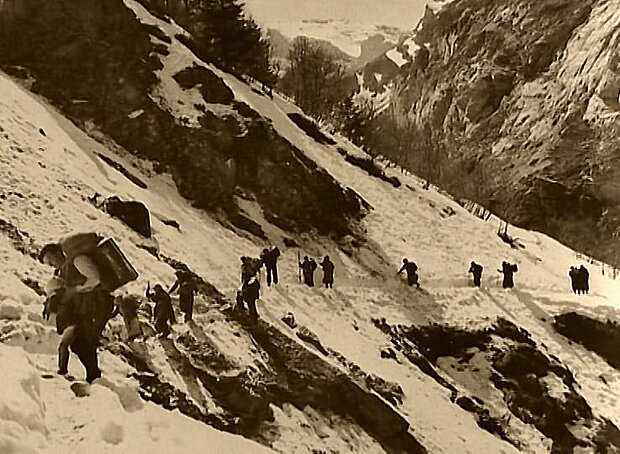
De l'Exil à l'Intégration
documentary by Michel Dieuzaide - 51 minutes
This film recounts the adventures of Spanish republican men and women who left their homes in 1938 during the retirada—hoping to return soon—and remained in France, in the border department of Hautes-Pyrénées.
The Spanish war left in their minds the memory of a friend, a relative telling us how, as a child, they had to cross the Pyrenees, in the cold, snow and suffering, leaving their country to come to the land of freedom that France represented.
Driven by both chance and necessity, they fought for their adopted country, started families and enriched the Hautes-Pyrénées with their differences, sharing their desire to live and develop the land that had become theirs.
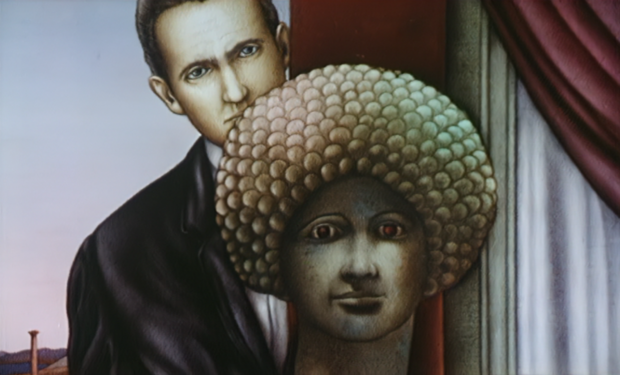
Repas du soir au bord de la mer
a short film by Christine Pauly - 6 minutes
Genesis of a pictorial creation.
In the discovery of this painting by Michèle Teysseyre, the reading of each element of its composition reveals the origins of the artist's inspiration and therefore of her creation.

